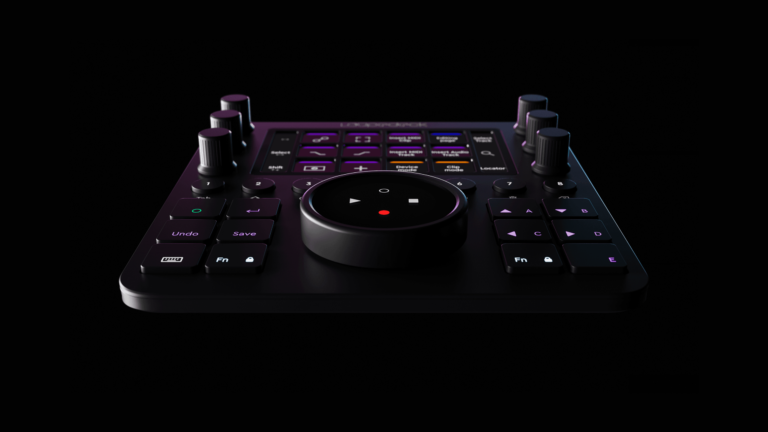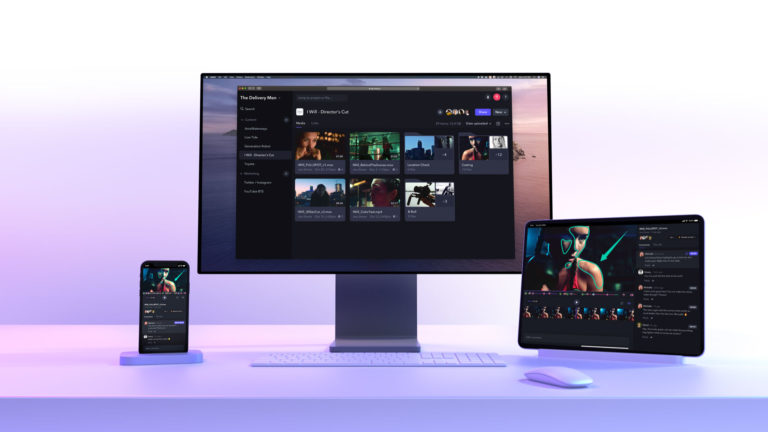Capture 24p 16:9 DV on a Canon XL2 with Focus Enhancements FireStore FS-4 - and edit in FCP HD
Connect a FireWire DV cable from the DV In/Out port of the XL2 to the
DV I/O port of the FS-4.

Ratio switch to 16:9. Set the Frame Rate switch to 24p. Press the XL2
Menu button and enter "Camera Setup." Select either 2:3 or 2:3:3:2 Mode
(the FS-4 will record either mode). Next, scroll to the XL2 "System"
page to "DV Control," select "ON." The XL2 is now ready to capture in
24p widescreen and control the FS-4. Tape is now optional because
you’re connected to FireStore.

"HDD MODE" page and select "DV RECORDER." Navigate to the "DV FORMATS"
page. Select "QUICKTIME 24P" to edit your DTE capture files in Final
Cut Pro HD, or choose "AVI TYPE2 24P" for use with other NLE’s. Make
sure that you properly set up the Date and Time within the FS-4 "SETUP"
menu. This will ensure that your DTE capture files are named properly
according to the actual time and date of your shoot.

capture your footage without using tape at all. You can capture up to
three hours of DV (or HDV footage with the FS-4 HD upgrade option and
an appropriate HDV camcorder) with the FS-4 40 GB version, or just over
six hours with the optional FS-4 80 GB version. For added recording
confidence, shoot to both Tape and FireStore at the same time using
"SYNCRO SLAVE" control mode. In either "TAPELESS" or "SYNCRO SLAVE"
mode, the FS-4 is controlled by the REC start/stop trigger of your DV
camcorder via the FireWire DV I/O port. Your DV capture files will be a
mirror image of what is being generated in-camera to tape. Even if your
DV camcorder runs out of tape, the FS-4 will continue recording until
you decide to press the Stop button. If you’d rather directly control
recording via the front FS-4 keypad, select " LOCAL" Control Mode.

"REC" on the FS-4 display along with the clip number and time counter.
The FS-4 is capturing the same time code that’s being recorded to tape
via your camcorder.


Record menu and select "RETRO CACHE." This activates
a six-second memory buffer that means you are always recording. Every
time you press the REC start/stop trigger, the FS-4 will append a full
six seconds of "pre-roll" to the beginning of every shot. This provides
an excellent backup in the event that you are a little late with the
record trigger into shooting your scene. The optional FS-4 PRO offers
10 seconds of "RETRO CACHE" as well as a Retro Disk
feature that lets you extend the retro-record time based on the
remaining available space on the hard disk.

which is directly compatible with Mac OS X, or, if you decide to edit
in your favorite PC NLE with your preferred file format, with either
Windows 2000 or Windows XP. Simply connect the FS-4 computer I/O port
to the FireWire 400 DV I/O port on your Mac with a 6pin-to-6pin
FireWire cable (6pin-to-4pin for most PCs). On the FS-4, navigate to
the "HDD Mode" page, select "DD
Drive," then select " Enable."
Once the FS-4 is connected to your Mac in "DD Drive"
mode, it will mount to the desktop and show up as a regular hard drive,
giving you access to all of your QuickTime 24p clips immediately. Now,
you’re ready to edit your footage in Final Cut Pro HD. If this is the
first time you edit 24p 16:9 footage in FCP HD, you’ll need to make
sure that your sequence timeline settings are set to handle 24p 16:9
NTSC DV footage.
Settings" window under the FCP HD pull-down menu (keystroke:
Option/Command Q). Click on the "Sequence Presets" tab and select "DV
NTSC 48 kHz – 23.98" as your project’s sequence setting. The "Sequence
Settings Summary" confirms your editing timebase is 23.98 fps, but
there is one more setting to check before closing the "Audio/Video
Settings" window. Click on the "Edit" button at the bottom to enter the
"Sequence Preset Editor" window. Click on the "Anamorphic 16:9" button
to turn it on. Now your sequence settings are properly set for editing
16:9 24p digital video.
directly from the FS-4 disk drive and begin cutting. No file transfer,
file conversion or rendering is required. Save your project and you’re
ready to edit! Since you’ll most likely be back in the field to shoot
more footage with your FS-4 later on, copy your DTE capture files from
the FS-4 to your designated FCP Capture Scratch project folder as you
normally would in capturing any media. Once you’ve backed up your DTE
capture files, you can then re-format the FS-4 disk drive with the easy
Format Disk utility built into the FS-4 and your FS-4 will be ready to
capture more footage. That’s DTE: By capturing to hard disk as you
shoot, you save tons of time and money, plus you output faster and more
efficiently. Rinse and repeat!



collaborative of established filmmakers who share the vision of
creating compelling storytelling using the new tools for digital
cinema. Both have more than two decades of production and editing
credits on public and network television and have created productions
for Canon USA, JVC Japan, Focus Enhancements, Tiffen, Bogen Imaging and
MIT AMPS. Daniel is an Apple Certified Trainer and founder of the
Boston Final Cut Pro User Group ( BOSFCPUG) and Co-Leader of the Final
Cut Pro User Group Network. Donald is a DP skilled in both SD and HD
formats. They are currently collaborating with wildlife filmmaker Art
Smith to document the changes taking place within the Arctic National
Wildlife Refuge ( ANWR).
Recorder captures your DV footage in your native NLE file format to
fast "edit-ready" 5400 rpm hard disks. This tutorial shows you how the
DTE process works with Final Cut Pro HD when you’re using 24p 16:9
footage shot with the Canon XL2 digital camcorder.
Did you enjoy this article? Sign up to receive the StudioDaily Fix eletter containing the latest stories, including news, videos, interviews, reviews and more.










Can you help me how to connect FS-100 with Canon XL2 Camera. I try it but it doesn’t work.